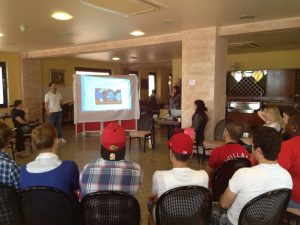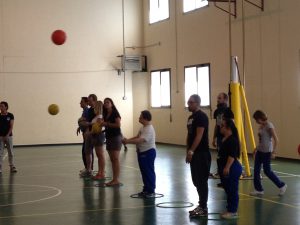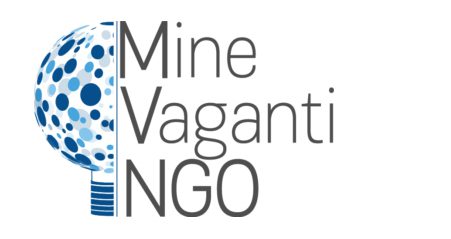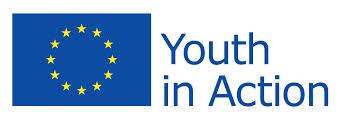Inclusive Sport for all
“Inclusive Sport for all” was a MVNGO’s Training Course (TC) that dealt with the importance of the Sport as an educational tool for promoting social inclusion.
The 12 countries involved in the project were the following: Turkey, Spain, Poland, Norway, Uk, Slovenia, Romania Estonia, France, Croatia, Bulgaria plus Italy, in total 27 participants.
Target group: social workers, youth workers, youth leaders experienced in sport activity or who would like to use Sport as an educational method.
Learning objectives of the TC were:
– To raise knowledge and gain new experiences on Sport and outdoor activities as tools of recognition of non formal learning;
– To clarify the challenges of Sport as a tool for education regarding to content and methodology, non formal and informal learning process, intercultural learning and impact on local community;
– To create a network of professionals (youth leader, social worker and Trainer) who work with people fewer opportunities using those new methodologies and ready to develop new YIA projects raising awareness on personal, social and professional development during the work activity.
The working method proposed by the Trainers started from a wider point of view, macro areas such as values, education and intercultural dialogue through Sport, to the specific activities such as tools and methods to be held during the daily working life in every NGOs or youth centers when you can make the difference for building a civic society (bottom-up process).
Sport has an educational dimension and plays a social, cultural and recreational role.
The main topic of this project is to use “sports as a way of improving active citizenship activities, cultural exchange and social inclusion of young people”.
Sport activity has enormous potential of social inclusion thanks to its capacity to bring all the people together, regardless of age, gender or social origin.
Organisers and Trainers wanted to underline the importance of Sport in informal, non formal and formal educational context.
Usually, during a Sport activity, people could learn a lot of things (rules, fair play ecc) even if they are embedded in a informal context.
To play a game means to use an universal language which follow rules and try to work hard in order to reach the aim: to win the competition with the others and/or yourself.
The Trainers leaded sessions based on spreading new methods about Sport as a tool for inclusion of people with fewer opportunities: youth with disabilities, migrants, persons discriminated by gender and people from rural area.
Actually, Sport is useful for breaking stereotypes (facilitating the process of integration of immigrants in the society), promoting mutual understanding and intercultural dialogue (use Sport as an universal language) and facilitating the process of inclusion of people with fewer opportunities such as young people from rural areas or suburbs. Therefore its values are fundamental in the third sector’s working processes, where they can be used in order to prevent the sense of intolerance, social exclusion and marginalization. One of the most important areas in which we can successfully use Sport is in relation to the disability.
Sport is a tool to contrast racism and xenophobia and it is a souce of support in including people with special needs.The TC followed the non formal education approach: a combination of different creative and interactive methods will be used by the Trainers team and designed upon the profile of participants.
Some examples of the proposed working methods: theoretical inputs, round table, Compass/Salto sessions, individual/group activities, group exercises, work on examples in a small group, case studies, real attempts. The Trainers established a theoretical framework and common reference points for learning and communication in this course, and the course methodology foresees direct involvement of the organisations which already work on the topic and that will be present at the TC.
We asked 2 internationally accredited trainers with huge experience in the youth field and non-formal education through Sport, Antonio Saccone from SPOLINT and Gary Grieve from ISCA (International Sport and Association) to be the experts in our project.






